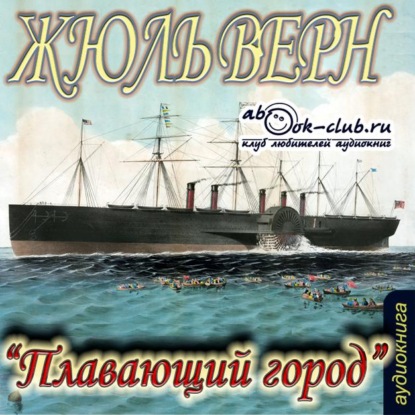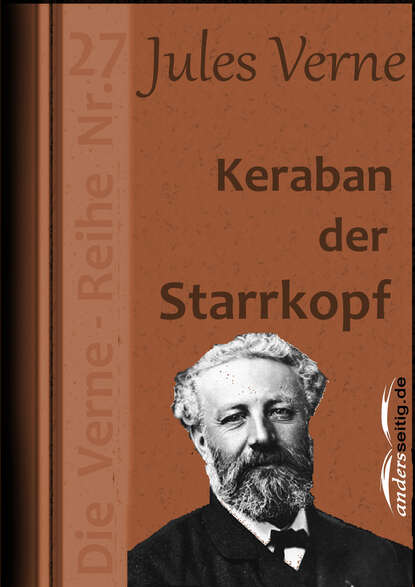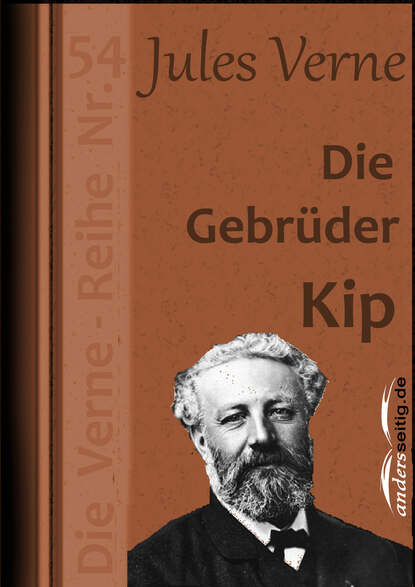 Полная версия
Полная версияПолная версия:
Жюль Габриэль Верн Celebrated Travels and Travellers, Part 3. The Great Explorers of the Nineteenth Century
- + Увеличить шрифт
- - Уменьшить шрифт

Verne Jules
Celebrated Travels and Travellers, Part 3. / The Great Explorers of the Nineteenth Century
PART I
CHAPTER I
THE DAWN OF A CENTURY OF DISCOVERY
Slackness of discovery during the struggles of the Republic and Empire – Seetzen's voyages in Syria and Palestine – Hauran and the circumnavigation of the Dead Sea – Decapolis – Journey in Arabia – Burckhardt in Syria – Expeditions in Nubia upon the two branches of the Nile – Pilgrimage to Mecca and Medina – The English in India – Webb at the Source of the Ganges – Narrative of a journey in the Punjab – Christie and Pottinger in Scinde – The same explorers cross Beluchistan into Persia – Elphinstone in Afghanistan – Persia according to Gardane, A. Dupré, Morier, Macdonald-Kinneir, Price, and Ouseley – Guldenstædt and Klaproth in the Caucasus – Lewis and Clarke in the Rocky Mountains – Raffles in Sumatra and Java.
A sensible diminution in geographical discovery marks the close of the eighteenth and the beginning of the nineteenth centuries.
We have already noticed the organization of the Expedition sent in search of La Pérouse by the French Republic, and also Captain Baudin's important cruise along the Australian coasts. These are the only instances in which the unrestrained passions and fratricidal struggles of the French nation allowed the government to exhibit interest in geography, a science which is especially favoured by the French.
At a later period, Bonaparte consulted several savants and distinguished artists, and the materials for that grand undertaking which first gave an idea (incomplete though it was) of the ancient civilization of the land of the Pharaohs, were collected together. But when Bonaparte had completely given place to Napoleon, the egotistical monarch, sacrificing all else to his ruling passion for war, would no longer listen to explorations, voyages, or possible discoveries. They represented money and men stolen from him; and his expenditure of those materials was far too great to allow of such futile waste. This was clearly shown, when he ceded the last remnants of French colonial rule in America to the United States for a few millions.
Happily other nations were not oppressed by the same iron hand. Absorbed although they might be in their struggle with France, they could still find volunteers to extend the range of geographical science, to establish archæology upon scientific bases, and to prosecute linguistic and ethnographical enterprise.
The learned geographer Malte-Brun, in an article published by him in the "Nouvelles Annales des Voyages" in 1817, gives a minute account of the condition of French geographical knowledge at the beginning of the nineteenth century, and of the many desiderata of that science. He reviews the progress already made in navigation, astronomy, and languages. The India Company, far from concealing its discoveries, as jealousy had induced the Hudson Bay Company to do, founded academies, published memoirs, and encouraged travellers.
War itself was utilized, for the French army gathered a store of precious material in Egypt. We shall shortly see how emulation spread among the various nations.
From the commencement of the century, one country has taken the lead in great discoveries. German explorers have worked so earnestly, and have proved themselves possessed of will so strong and instinct so sure, that they have left little for their successors to do beyond verifying and completing their discoveries.
The first in order of time was Ulric Jasper Seetzen, born in 1767 in East Friesland; he completed his education at Göttingen, and published some essays upon statistics and the natural sciences, for which he had a natural inclination. These publications attracted the attention of the government, and he was appointed Aulic Councillor in the province of Tever.
Seetzen's ambition, like that of Burckhardt subsequently, was an expedition to Central Africa, but he wished previously to make an exploration of Palestine and Syria, to which countries attention was shortly to be directed by the "Palestine Association," founded in London in 1805.
Seetzen did not wait for this period, but in 1802 set out for Constantinople, furnished with suitable introductions.
Although many pilgrims and travellers had successively visited the Holy Land and Syria, the vaguest notions about these countries prevailed. Their physical geography was not determined, details were wanting, and certain regions, as for example, the Lebanon and the Dead Sea had never been explored.
Comparative geography did not exist. It has taken the unwearied efforts of the English Association and the science of travellers in connexion with it to erect that study into a science. Seetzen, whose studies had been various, found himself admirably prepared to explore a country which, often visited, was still in reality new.
Having travelled through Anatolia, Seetzen reached Aleppo in May, 1802. He remained there a year, devoting himself to the practical study of the Arabic tongue, making extracts from Eastern historians and geographers, verifying the astronomical position of Aleppo, prosecuting his investigations into natural history, collecting manuscripts, and translating many of those popular songs and legends which are such valuable aids to the knowledge of a nation.
Seetzen left Aleppo in 1805 for Damascus. His first expedition led him across the provinces of Hauran and Jaulan, situated to the S.E. of that town. No traveller had as yet visited these two provinces, which in the days of Roman dominion had played an important part in the history of the Jews, under the names of Auranitis and Gaulonitis. Seetzen was the first to give an idea of their geography.
The enterprising traveller explored the Lebanon and Baalbek. He prosecuted his discoveries south of Damascus, and entered Judea, exploring the eastern portion of Hermon, the Jordan, and the Dead Sea. This was the dwelling-place of those races well known to us in Jewish history; the Ammonites, Moabites, and Gileadites. At the time of the Roman conquest, the western portion of this country was known as Perea, and was the centre of the celebrated Decapolis or confederacy of ten cities. No modern traveller had visited these regions, a fact sufficient to induce Seetzen to begin his exploration with them.
His friends at Damascus had tried to dissuade him from the journey, by picturing the difficulties and danger of a route frequented by Bedouins; but nothing could stay him. Before visiting the Decapolis region and investigating the condition of its ruins, Seetzen traversed a small district, named Ladscha, which bore a bad reputation at Damascus on account of the Bedouins who occupied it, but which was said to contain remarkable antiquities.
Leaving Damascus on the 12th of December, 1805, with an Armenian guide who misled him from the first, Seetzen, having prudently provided himself with a passport from the Pasha, proceeded from village to village escorted by an armed attendant.
In a narrative published in the earlier "Annales des Voyages," says the traveller, —
"That portion of Ladscha which I have seen is, like Hauran, entirely formed of basalt, often very porous, and in many districts forming vast stony deserts. The villages, which are mostly in ruins, are built on the sides of the rocks. The black colour of the basalt, the ruined houses, the churches and towers fallen into decay, with the total dearth of trees and verdure, combine to give a sombre aspect to this country, which strikes one almost with dread. In almost every village are either Grecian inscriptions, columns, or other remnants of antiquity; amongst others I copied an inscription of the Emperor Marcus Aurelius. Here, as in Hauran, the doors were of basalt."
Seetzen had scarcely arrived at the village of Gerasa and enjoyed a brief rest, before he was surrounded by half a score of mounted men, who said they had come by order of the vice-governor of Hauran to arrest him. Their master, Omar Aga, having learned that the traveller had been seen in the country the preceding year, and imagining his passports to be forgeries, had sent them to bring him before him.
Resistance was useless. Without allowing himself to be disconcerted by an incident which he regarded as a simple contretemps, Seetzen proceeded in the direction of Hauran, where after a day and a half's journey he met Omar Aga, travelling with the Mecca caravan. The travellers having received a hearty welcome, departed on the morrow, but meeting upon his way with many troops of Arabs, upon whom his demeanour imposed respect, he came to the conclusion that it had been Omar Aga's intention to have him robbed.
Returning to Damascus, Seetzen had great trouble in finding a guide who would accompany him in his expedition along the eastern shore of the Jordan, and around the Dead Sea. At last, a certain Yusuf-al-Milky, a member of the Greek church, who, for some thirty years, had carried on traffic with the Arab tribes, and travelled in the provinces which Seetzen desired to visit, agreed to bear him company.
The two travellers left Damascus on the 19th of January, 1806. Seetzen's entire baggage consisted of a few clothes, some indispensable books, paper for drying plants, and an assortment of drugs, necessary to sustain his assumed character as a physician. He wore the dress of a sheik of secondary rank.
The districts of Rasheiya and Hasbeiya, at the foot of Mount Hermon – whose summit at the time was hidden by snow – were the first explored by Seetzen, for the reason that they were the least known in Syria.
He then visited Achha, a village inhabited by the Druses, upon the opposite side of the mountain; Rasheiya, the residence of the Emir; and Hasbeiya, where he paid a visit to the Greek Bishop of Szur or Szeida, to whom he carried letters of recommendation. The object which chiefly attracted his attention in this mountainous district, was an asphalt-mine, whose produce is there used to protect the vines from insects.
Leaving Hasbeiya, Seetzen proceeded to Bâniâs, the ancient Casaræa Philippi, which is now a mere collection of huts. Even if traces of its fortifications were discoverable, not the smallest remains could be found of the splendid temple erected by Herod in honour of Augustus.
Ancient authorities hold that the river of Bâniâs is the source of the Jordan, but in reality that title belongs to the river Hasbany, which forms the larger branch of the Jordan. Seetzen recognized it, as he also did the Lake of Merom, or the ancient Samachonitis.
Here he was deserted by his muleteers, whom nothing could induce to accompany him so far as the bridge of Jisr-Benat-Yakûb, and also by his guide Yusuf, whom he was forced to send by the open road to await his arrival at Tiberias, while he himself proceeded on foot towards the celebrated bridge, accompanied by a single Arab attendant.
He, however, found no one at Jisr-Benat-Yakûb who was willing to accompany him along the eastern shore of the Jordan, until a native, believing him to be a doctor, begged him to go and see his sheik, who was suffering from ophthalmia, and who lived upon the eastern bank of the Lake of Tiberias.
Seetzen gladly availed himself of this opportunity; and it was well he did so, for he was thus enabled to study the Lake of Tiberias and also the Wady Zemmâk at his leisure, not, however, without risk of being robbed and murdered by his guide. Finally he reached Tiberias, called by the Arabs Tabaria, where he found Yusuf, who had been waiting for him for several days.
"The town of Tiberias," says Seetzen, "is situated upon the lake of the same name. Upon the land side it is surrounded by a good wall of cut basalt rock, but nevertheless, it scarcely deserves to be called a town. No trace of its earlier splendour remains, but the ruins of the more ancient city, which extended to the Thermæ, a league to the eastward, are recognizable.
"The famous Djezar-Pasha caused a bath to be erected above the principal spring. If these baths were in Europe, they would rival all those now existing. The valley in which the lake is situated, is so sheltered, and so warm, that dates, lemon-trees, oranges, and indigo, flourish there, whilst on the high ground surrounding it, the products of more temperate climates might be grown."
South-west of the lake are the remains of the ancient city of Tarichæa. There, between two mountain chains, lies the beautiful plain of El Ghor, poorly cultivated, and overrun by Arab hordes. No incident of moment marked Seetzen's journey to Decapolis, during which he was obliged to dress as a mendicant, to escape the rapacity of the native tribes.
"Over my shirt" he relates, "I wore an old kambas, or dressing-gown, and above that a woman's ragged chemise; my head was covered with rags, and my feet with old sandals. I was protected from cold and wet by an old ragged 'abbaje,' which I wore across my shoulders, and a stick cut from a tree served me as a staff; my guide, who was a Greek Christian, was dressed much in the same style; and together we scoured the country for some ten days, often hindered in our journey by chilling rains, which wetted us to the skin. For my part, I travelled an entire day in the mud with bare feet, because I could not wear my sandals upon sodden ground."
Draa which he reached a little farther on, presented but a mass of desert ruins; and no trace of the monuments which rendered it famous in earlier days, were visible. El-Botthin, the next district, contains hundreds of caverns, hewn in the rocks, which were occupied by the ancient inhabitants. It was much the same at Seetzen's visit. That Mkês was formerly a rich and important city, is proved by its many ruined tombs and monuments. Seetzen identified it with Gadara, one of the minor towns of the Decapolis. Some leagues beyond are the ruins of Abil or Abila. Seetzen's guide, Aoser, refused to go there, being afraid of the Arabs. The traveller was, therefore, obliged to go alone.
"This town," he says, "is entirely in ruins and abandoned. Not a single building remains; but its ancient splendour is sufficiently proved by ruins. Traces of the old fortifications remain, and also many pillars and arches of marble, basalt, and granite. Beyond the walls, I found a great number of pillars; two of them were of an extraordinary size. Hence I concluded that a large temple had formerly existed there."
On leaving El-Botthin, Seetzen entered the district of Edschlun, and speedily discovered the important ruins of Dscherrasch, which may be compared with those of Palmyra and Baalbek.
"It is difficult to conjecture," says Seetzen, "how this town, which was formerly so celebrated, has hitherto escaped the attention of antiquarians. It is situated in an open plain, which is fertile, and watered by a river. Several tombs, with fine bas-reliefs arrested my attention before I entered it; upon one of them, I remarked a Greek inscription. The walls, which were of cut marble, are entirely crumbled away, but their length over three quarters of a league, is still discernible. No private house has been preserved, but I remarked several public buildings of fine architectural design. I found two magnificent amphitheatres constructed of solid marble, the columns, niches, &c., in good condition, a few palaces, and three temples; one of the latter having a peristyle of twelve large Corinthian pillars, of which eleven were still erect. In one of these temples I found a fallen column of the finest polished Egyptian granite. Beside these, I found one of the city gates, formed of three arches, and ornamented with pilasters, in good preservation. The finest of the remains is a street adorned throughout its length with Corinthian columns on either side, and terminating in a semicircle, which was surrounded by sixty Ionic columns, all of the choicest marble. This street was crossed by another, and at the junction of the two, large pedestals of wrought stone occupied each angle, probably in former times these bore statues. Much of the pavement was constructed of hewn stone. Altogether I counted nearly two hundred columns, still in a fair state of preservation; but the number of these is far exceeded by those which have fallen into decay, for I saw only half the extent of the town, and in all probability the other half beyond this was also rich in remarkable relics."
From Seetzen's description, Dscherrasch would appear to be identical with the ancient Gerasa, a town which up to that time had been erroneously placed on the maps.
The traveller crossed Gerka – the Jabok of Jewish history – which forms the northern boundary of the country of the Ammonites, and penetrated into the district of El-Belka, formerly a flourishing country, but which he found uncultivated and barren, with but one small town, Szalt, formerly known as Amathus. Afterwards Seetzen visited Amman, a town which, under the name of Philadelphia, is renowned among the decapolitan cities, and where many antiquities are to be found, Eleal, an ancient city of the Amorites, Madaba, called Madba in the time of Moses, Mount Nebo, Diban, Karrak, the country of the Moabites, and the ruins of Robba, (Rabbath) anciently the royal residence. After much fatigue, he reached the region situated at the southern extremity of the Dead Sea, named Gor-es-Sophia.
The heat was extreme, and great salt-plains, where no watercourses exist, had to be crossed. Upon the 6th of April, Seetzen arrived in Bethlehem, and soon afterwards at Jerusalem, having suffered greatly from thirst, but having passed through most interesting countries, hitherto unvisited by any modern traveller.
He had also collected much valuable information respecting the nature of the waters of the Dead Sea, refuted many false notions, corrected mistakes upon the most carefully constructed maps, identified several sites of the ancient Peræa, and established the existence of numberless ruins, which bore witness to the prosperity of all this region under the sway of the Roman Empire. Upon the 25th of June, 1806, Seetzen left Jerusalem, and returned to St. Jean d'Acre by sea.
In an article in the Revùe Germanique for 1858, M. Vinen speaks of his expedition as a veritable journey of discovery. Seetzen, however, was unwilling to leave his discoveries incomplete. Ten months later, he again visited the Dead Sea, and added largely to his observations. From thence he proceeded to Cairo, where he remained for two years, and bought a large portion of the oriental manuscripts which now enrich the library of Gotha. He collected many facts about the interior of the country, choosing instinctively those only which could be amply substantiated.
Seetzen, with his insatiable thirst for discovery, could not remain long in repose, far removed from idleness though it was. In April, 1809, he finally left the capital of Egypt, and directed his course towards Suez and the peninsula of Sinai, which he resolved to explore before proceeding to Arabia. At this time Arabia was a little-known country, frequented only by merchants trading in Mocha coffee-beans. Before Niebuhr's time no scientific expedition for the study of the geography of the country or the manners and customs of the inhabitants had been organized.
This expedition owed its formation to Professor Michälis, who was anxious to obtain information which would throw light on certain passages in the Bible, and its expenses were defrayed by the generosity of King Frederick V. of Denmark. It comprised Von Hannen, the mathematician, Forskaal, the naturalist, a physician named Cramer, Braurenfeind, the painter, and Niebuhr, the engineer, a company of learned and scientific men, who thoroughly fulfilled all expectations founded upon their reputations.
In the course of two years, from 1762 to 1764, they visited Egypt, Mount Sinai, Jeddah, landed at Loheia, and advancing into Arabia Felix, explored the country in accordance with the speciality of each man. But the enterprising travellers succumbed to illness and fatigue, and Niebuhr alone survived to utilize the observations made by himself and his companions. His work on the subject is an inexhaustible treasury, which may be drawn upon in our own day with advantage.
Seetzen, therefore, had much to achieve to eclipse the fame of his predecessor. He omitted no means of doing so. After publicly professing the faith of Islam, he embarked at Suez for Mecca, and hoped to enter that city disguised as a pilgrim. Tor and Jeddah were the places visited by him before he travelled to the holy city of Mecca. He was much impressed by the wealth of the faithful and the peculiar characteristics of that city, which lives for and by the Mahometan cultus. "I was seized," says the traveller, "with an emotion which I have never experienced elsewhere."
It is alike unnecessary to dwell upon this portion of the voyage and upon that relating to the excursion to Medina. Burckhardt's narrative gives a precise and trustworthy account of those holy places, and besides, there remain of Seetzen's works only the extracts published in "Les Annales des Voyages," and in the Correspondence of the Baron de Zach. The Journal of Seetzen's travels was published in German, and in a very incomplete manner, only in 1858.
The traveller returned from Medina to Mecca, and devoted himself to a secret study of the town, with its religious ceremonies, and to taking astronomical observations, which determined the position of the capital of Islam.
Seetzen returned to Jeddah on the 23rd March, 1810. He then re-embarked, with the Arab who had been his guide to Mecca, for Hodeidah, which is one of the principal ports of Yemen. Passing the mountainous district of Beith-el-Fakih, where coffee is cultivated, after a month's delay at Doran on account of illness, Seetzen entered Sana, the capital of Yemen, which he calls the most beautiful city of the East, on the 2nd of June. Upon the 22nd of July he reached Aden, and in November he was at Mecca, whence the last letters received from him are dated. Upon re-entering Yemen, he, like Niebuhr, was robbed of his collections and baggage, upon the pretext that he collected animals, in order to compose a philtre, with the intention of poisoning the springs.
Seetzen, however, would not quietly submit to be robbed. He started at once for Sana, intending to lay a complaint before the Iman. This was in December, 1811. A few days later news of his sudden death arrived at Taes, and the tidings soon reached the ears of the Europeans who frequented the Arabian ports.
It is little to the purpose now to inquire upon whom the responsibility of this death rests – whether upon the Iman or upon those who had plundered the traveller – but we may well regret that so thorough an explorer, already familiar with the habits and customs of the Arabs, was unable to continue his explorations, and that the greater portion of his diaries and observations have been entirely lost.
"Seetzen," says M. Vivien de Saint Martin, "was the first traveller since Ludovico Barthema (1503) who visited Mecca, and before his time no European had even seen the holy city of Medina, consecrated by the tomb of the Prophet."
From these remarks we gather how invaluable the trustworthy narrative of this disinterested and well-informed traveller would have been.
Just as an untimely death ended Seetzen's self-imposed mission, Burckhardt set out upon a similar enterprise, and like him commenced his long and minute exploration of Arabia by preliminary travel through Syria.
"It is seldom in the history of science," says M. Vivien de Saint Martin, "that we see two men of such merit succeed each other in the same career or rather continue it; for in reality Burckhardt followed up the traces Seetzen had opened out, and, seconded for a considerable time by favourable circumstances which enabled him to prosecute his explorations, he was enabled to add very considerably to the known discoveries of his predecessor."
Although John Lewis Burckhardt was not English, for he was a native of Lausanne, he must none the less be classed among the travellers of Great Britain. It was owing to his relations with Sir Joseph Banks, the naturalist who had accompanied Cook, and Hamilton, the secretary of the African Association, who gave him ready and valuable support, that Burckhardt was enabled to accomplish what he did.
Burckhardt was a deeply learned man. He had passed through the universities of Leipzic, and Göttingen, where he attended Blumenbach's lectures, and afterwards through Cambridge, where he studied Arabic. He started for the East in 1809. To inure himself to the hardships of a traveller's life, he imposed long fasts upon himself, accustomed himself to endure thirst, and chose the pavements of London or dusty roads for a resting-place. But how trifling were these experiences in comparison with those involved in an apostolate of science!







